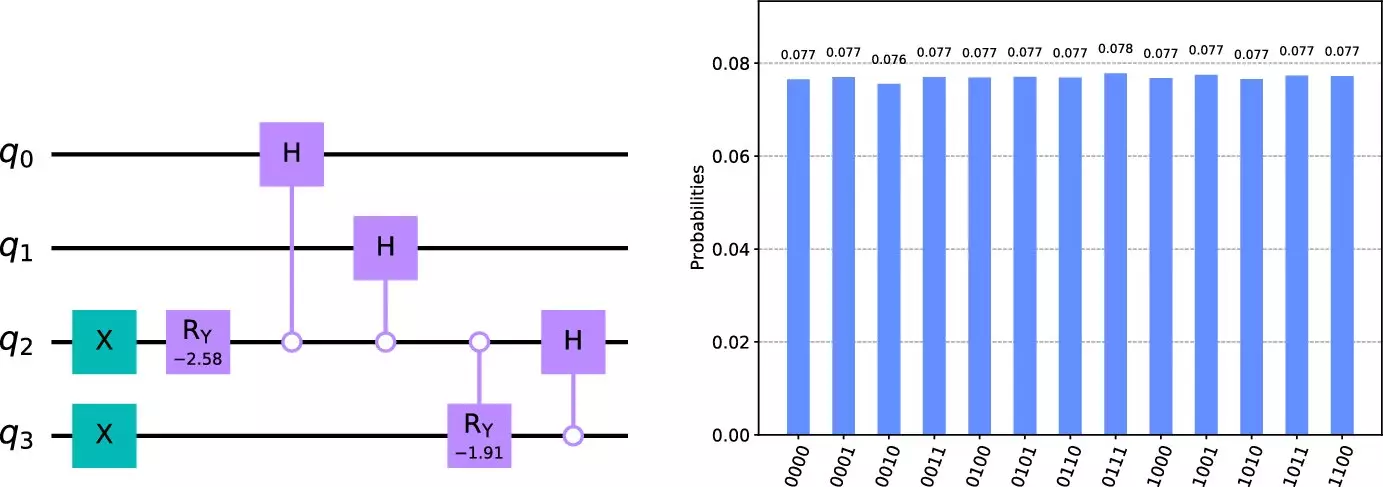In the realm of quantum computing, advancements often hinge on the efficiency of algorithms. A groundbreaking algorithm conceived by Dr. Prakash Vedula, a distinguished professor at the University of Oklahoma’s School of Aerospace and Mechanical Engineering, has emerged as a game-changer. Developed in collaboration with his former student Dr. Alok Shukla, this innovative approach—termed the Shukla-Vedula algorithm—has been incorporated into leading quantum software platforms from technology giants Google and IBM. This integration underscores the algorithm’s potential not only in theoretical applications but also in practical implementations across a variety of fields.
At its core, the Shukla-Vedula algorithm seeks to enhance the creation of uniform quantum superposition states, a pivotal aspect of quantum computing. Traditional methods for achieving this task have often left much to be desired, characterized by complexity and resource intensity. However, this novel algorithm demonstrates staggering improvements, reducing the computational workload significantly. This breakthrough was recently detailed in the journal Quantum Information Processing, where it was highlighted that the algorithm achieves its effectiveness without necessitating additional resources—an aspect that sets it apart from previous methodologies.
The implications of the Shukla-Vedula algorithm stretch far beyond the confines of academia. Its versatility lends itself to a myriad of applications such as quantum search algorithms, optimization problems, differential equation solutions, signal processing, cryptography, financial modeling, and artificial intelligence. For instance, Goldman Sachs has initiated the use of this algorithm for the complex task of assessing risks associated with financial derivatives, thereby demonstrating a direct link between academic research and industry application. The significant improvement in complexity reduction is poised to influence practices in these sectors substantially.
The recent integration of the Shukla-Vedula algorithm into Qiskit and Cirq—software platforms spearheaded by IBM and Google, respectively—marks an important step in its validation. These platforms are integral to many quantum computing endeavors in both academic research and corporate exploration. The adoption of this algorithm within such prominent tools highlights its efficacy and potential to transform quantum computing workflows, making high-level applications more accessible and practical for developers and researchers alike.
Dr. Vedula is optimistic about the trajectory of quantum computing as propelled by his algorithm. He notes that exponential improvements in scientific disciplines are rare, and this algorithm exemplifies such a leap. As industries grapple with complex challenges, the contributions of the Shukla-Vedula algorithm could prove crucial in driving advancements in quantum computing technology. The prospect of such innovations riding the wave of growing interest in quantum technologies promises an exhilarating future for researchers and practitioners aiming to harness the full power of quantum mechanics.
The Shukla-Vedula algorithm stands as a testament to the intense collaboration between academia and industry in the pursuit of cutting-edge technology. As integration continues within major quantum software frameworks, the foundational improvements it offers are likely to ignite further research, pushing the boundaries of what is possible in quantum computing. With profound implications for a diversity of applications and ongoing optimization efforts, the future of quantum computing appears brighter than ever.

